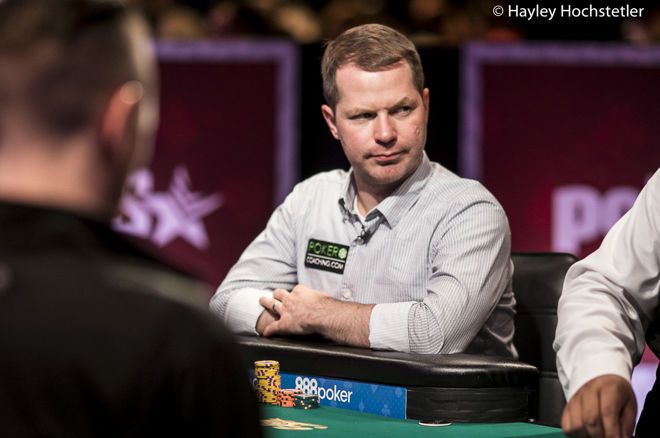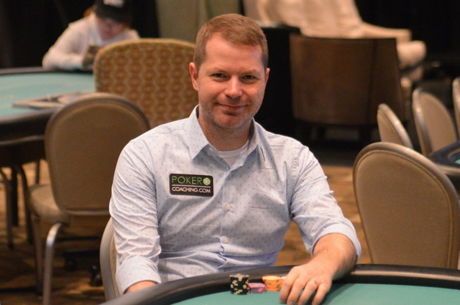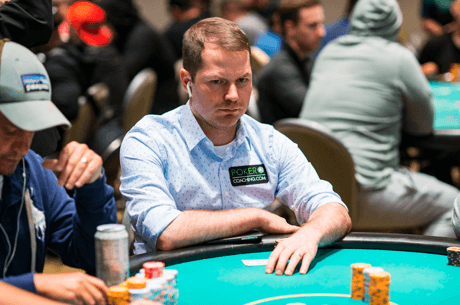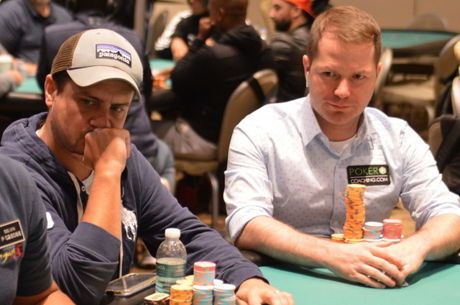Flopping Two Pair But Facing a Turn Shove �C Do You Call Off for Your Tournament Life?

Over the past two weeks, I��ve been exploring some interesting tournament spots encountered by some of my students. Two weeks ago, I asked whether you value bet certain turns or check hoping to get to showdown, and last week I offered a strategy on how to play the nut flush draw on a monotone board.
In this week��s hand, my student flopped two pair in a blind-versus-blind situation. It appeared to be a lucky spot, but then he bets the turn and gets pushed all in. Do you make the call for your tournament life?
The hand took place in a $550 buy-in World Poker Tour tournament at a six-handed table, and right off the bat, I think my opponent makes a pretty big mistake (unless he happens to have a really good read on his opponent). It happened when action folded to our hero, who has a 30 big blind stack in the small blind. He looked down at the A?5? and opted to raise to 2.2 bb.
The problem with this is the big blind, who had a 49 bb stack, only had to put in 1.2 bb into a 5.4 bb pot. That meant he only had to win approximately 22 percent of the time to break even. That��s not hard equity to realize when in position. He can just call a lot and play well in position. I��d rather see my student either raise to 3.5 bb or even limp. In this situation, I��m a big fan of a limping strategy.
The big blind calls and the flop fell A?5?7? to give our hero top and bottom pair. At this point, we don��t mind giving our opponent good odds to stick around. I definitely like a small-ish bet in this spot, and our student does bet 2.8 bb.
On the 3? turn, our hero should be thinking about how to best get his stack in by the river. Here, if we bet 7 bb out of our 27 bb stack and the big blind calls, the pot will get 14 bb larger and go up to 25 bb when we have 20 bb remaining in our stack. That��s a pretty nice scenario. If you bet bigger, it will look scarier to our opponent. Always consider your stack-to-pot ratio when trying to get all the money in. This will help you determine the best amount to bet.
As it happened, our hero bet 5.8 bb and the big blind raised all in.
This is an easy call. We have to call off 20 bb to win a pot that will go up to 65 bb. We just need to be good a third of the time. We lose to six-four, which is in our opponent��s range, but we also beat a lot of other two-pair combinations as well as a bunch of draws.
Sometimes you��re going to lose, but that is part of tournament poker. In the process of trying to take all the chips, sometimes you die trying. Do not live in fear in the rare instances where you happen to be beat.
Our hero does call off and the big blind shows the K?10? for a turned flush draw. The river was the harmless 2? and our hero was rewarded with a double.
Jonathan Little is a professional poker player and author with over $7,000,000 in live tournament earnings. He writes a weekly educational blog and hosts a podcast at JonathanLittlePoker.com. Sign up to learn poker from Jonathan for free at PokerCoaching.com. You can follow him on Twitter @JonathanLittle.









